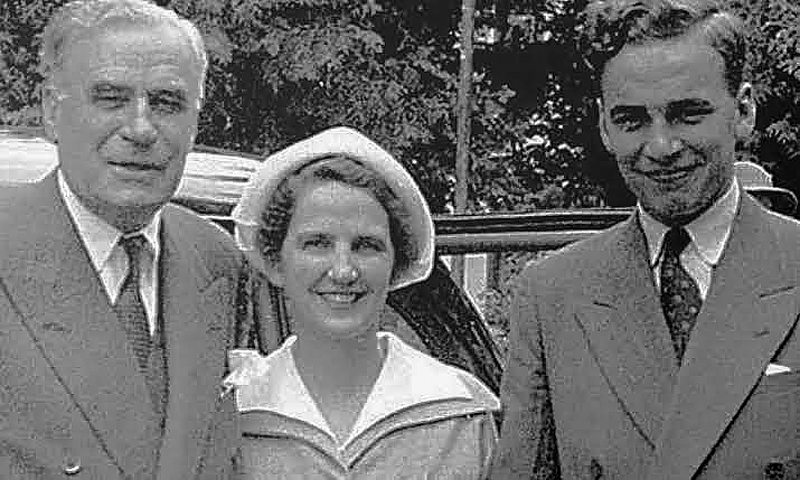NewzRoom Topics >
Grand Years 15 November 2023
The Great War: Letter to the Editor - Gallipoli campaign

The Editor, Daily Telegraph
Sir,
The brunt of the fighting was borne by the British, who suffered more than 26,000 deaths, and that the French fatal casualties were greater than those of the Anzacs.
It is absurd to state that “more than a quarter of a million Allied Servicemen died in the whole of the campaign.”
The real figure was 46,000. There were many more than 15,000 Anzacs involved in the campaign. They did not “land on the wrong beach”; they landed a mile to the north of their intended landing place, which was why it was largely uncontested.
Winston Churchill was certainly the driving force behind the Naval attempt to attack the Dardanelles. But the decision to land troops was made by the men on the spot, Rear-Admiral Roebuck and Gen Sir Ian Hamilton, without reference to London.
Top: From left, Keith Murdoch, his wife Elizabeth and son Rupert.

Page one of the 24 page screed of The Gallipoli Letter 1915 which Keith wrote to Prime Minister Fisher for him to establish the notion of Gallipoli as both a disaster and a place of national sacrifice.

Keith Murdoch outside C.E.W Bean’s dugout.
The jaundiced opinions and wild exaggerations of Ellis Ashmead-Bartlett may have been affected by the fact that he was arrested as a spy when he landed in Anzac Cove and was on the Majestic when it was torpedoed and sunk.
Keith Murdoch only paid one brief visit to Anzac before concocting his infamous account of British officers “wallowing in ice” while wounded men were dying of heat yards away. He never went to the British and French sector at all.
Between them, Ashmead-Bartlett and Murdoch created the enduring myth that Gallipoli was solely an Australian operation, conducted with immense valour, but wrecked by incompetent British commanders.
In fact, the best general in the campaign was Walker, the British commander of the 1st Australian Division and the architect of the capture of Lone Pine, whom the Australian government wanted later to command their forces on the Western Front after Gallipoli was brilliantly evacuated without a single casualty.
The British official history of the campaign was highly critical of the conduct of many Australian units on April 25, but these were suppressed for political reasons. I am not only a Gallipoli historian, but my uncle, a Gurkha officer, was an Anzac.
<< From a Gallipoli historian. Adapted by Frank Morris.
The Keith Murdoch Gallipoli Letter
> Read More




